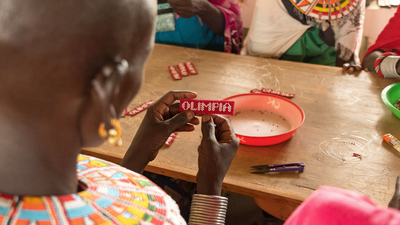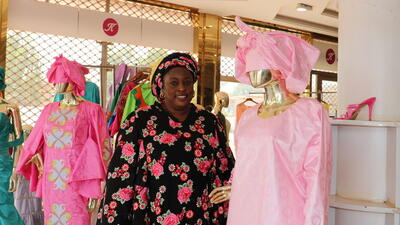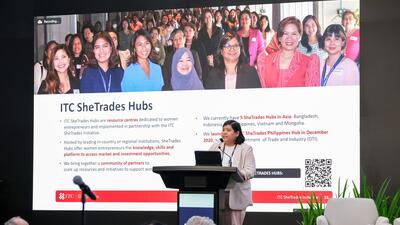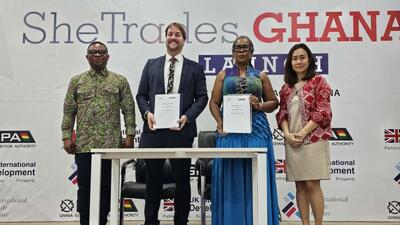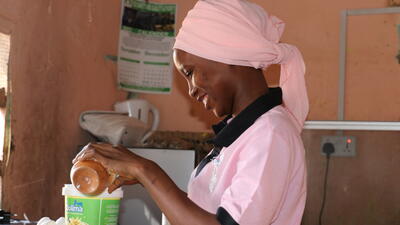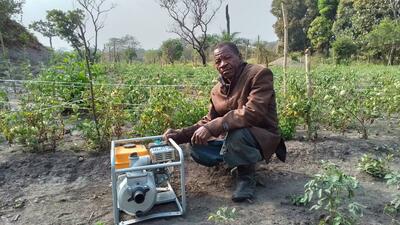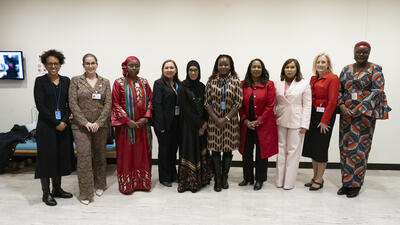
New analysis: A conducive trade environment can build resilience in women-led businesses
Actions by policymakers enhance the competitiveness of women-led businesses to the benefit of all
A new International Trade Centre (ITC) publication shows that trade policy needs to be more gender-responsive to ensure that both women and men can take advantage of trade opportunities. The findings underline the importance of policies that can ensure that women in business and trade drive the economic recovery from the COVID-19 pandemic; and that such policies are robust enough to handle future crises.
Aimed at policymakers and using data from ITC’s SME Competitiveness Survey, Non-Tariff Measures Survey and SheTrades Outlook, the report presents a new and comprehensive analysis focused on women-led businesses. Women in Businesses: New data and new insights includes actions to improve the competitiveness of women-led businesses and help them to surmount barriers when competing in trade; it also gives advice on making the policy environment more gender-responsive.
‘The challenge for policymakers is how to ensure that policies and institutions facilitate the participation in business and trade of women-led businesses, whether in times of crisis or otherwise. This publication responds to that challenge by providing guidance on how to build resilience and enhance women’s ability to trade,’ said Pamela Coke-Hamilton, Executive Director of ITC.
The COVID-19 pandemic showed that global shocks affect women and men in business and trade differently. From the outset, women lack opportunities to improve their capacity and do not have a conducive environment in which to participate in business and trade. Thus, they tend to be more adversely affected by crisis.
The analysis of the data reveals why women-led businesses struggle to compete with their men-led counterparts and participate in international trade. It also describes countries’ progress in creating a conducive policy ecosystem to promote gender equality and women’s economic empowerment.
Policymakers can enhance the competitiveness of women-led businesses by removing supply-side constraints and boosting Aid for Trade to deliver targeted initiatives aimed at women. This is particularly important during and after crises such as the COVID-19 pandemic.
In addition, policymakers can build trust and accelerate trade facilitation through actions such as creating public awareness campaigns to break gender stereotypes, simplifying documentation requirements, introducing electronic interfaces and providing training on gender issues to customs officials to prevent discriminatory behaviour at customs or border posts.
The authors suggest ways that policymakers can mainstream gender in trade policy design and implementation, for example by including women in the consultation process, encouraging their participation in the political process, and improving the collection of gender-disaggregated data to better identify the issues and challenges women-led businesses face. Gender-responsive trade policy can be a powerful instrument to ensure the long-term competitiveness and resilience of women-led businesses.
The report also describes key characteristics of these businesses, and highlights the differences in competitiveness between businesses led by women and those led by their male counterparts. The findings show that women-led businesses struggle with production efficiency, are less connected to buyers and suppliers and to business support services, and that they have trouble accessing finance.
However, the data also reveal that many of these businesses are remarkably resilient, and may benefit from the transition to more sustainable work practices. Actions by policymakers can help to resolve these barriers and support solutions that boost the participation of women-led business in trade, to the benefit of all.





